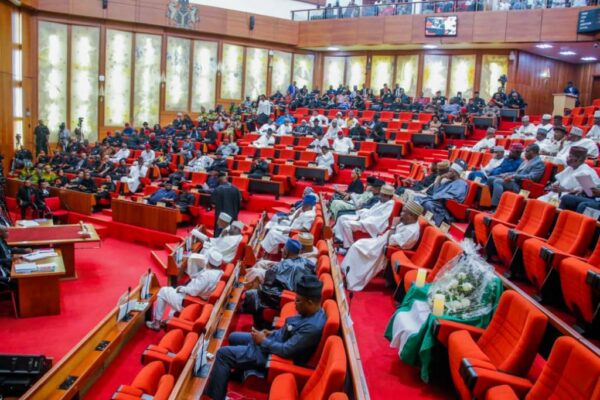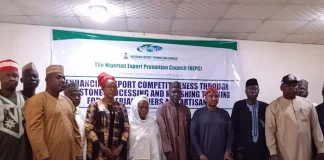The Nigerian Senate is poised to approve President Bola Tinubu’s $2.2 billion (approximately $1.77 trillion) loan request today (Wednesday). The loan is part of the external borrowing plan to fund the ₦28.7 trillion 2024 national budget.
In letters presented during Tuesday’s Senate and House of Representatives sessions, Tinubu explained that the loan would address a portion of the ₦9.7 trillion budget deficit for the 2024 fiscal year.
Following the letter’s presentation, Senate President Godswill Akpabio directed the Senate Committee on Local and Foreign Debts to review the proposal and submit a report within 24 hours.
“The Presidential request for $2.2 billion, equivalent to ₦1.77 trillion, is integrated into the external borrowing plan for the 2024 fiscal year,” Akpabio stated. “The Senate Committee on Local and Foreign Loans should give this matter expedited consideration and report back promptly.”
In addition, President Tinubu submitted the Medium-Term Expenditure Framework and Fiscal Strategy Paper (MTEF/FSP) for 2025–2027 to the Senate and House of Representatives.
Akpabio instructed the Senate Committee on Finance, National Planning, and Economic Affairs to analyze the MTEF/FSP documents and provide a report within one week. Key economic parameters in the framework include:
- Oil price benchmark of $75 per barrel
- Daily oil production target of 2.06 million barrels
- Exchange rate projection of ₦1,400 to $1
- GDP growth target of 6.4%
These parameters will serve as the foundation for reviewing the proposed ₦47.9 trillion 2025 budget.
In a related development, Tinubu also submitted the Social Investment Programme Amendment Bill to the National Assembly. This bill seeks to improve the framework for implementing social welfare initiatives, ensuring greater transparency and efficiency.
According to the President, the amendment proposes designating the National Investment Register as the central tool for identifying beneficiaries of social welfare programs. This data-driven approach is intended to optimize the delivery of social protections to Nigeria’s most vulnerable populations.
“The amendment will enhance transparency, efficiency, and the overall impact of our social and welfare programs in addressing the needs of vulnerable Nigerians,” Tinubu explained.
The bill, submitted under Section 58(2) of the 1999 Constitution (as amended), has been referred to the appropriate Senate committees for evaluation, with discussions expected to follow in future sessions.
If passed, the amendment will strengthen the administration and delivery of social investment programs, boosting their ability to reduce poverty and inequality across the nation.
This latest move highlights the Tinubu administration’s commitment to leveraging technology and data for more effective social welfare initiatives.













